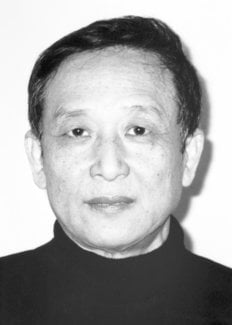Gao Xingjian
Biographical

Gao Xingjian, born January 4, 1940 in Ganzhou (Jiangxi province) in eastern China, is today a French citizen. Writer of prose, translator, dramatist, director, critic and artist. Gao Xingjian grew up during the aftermath of the Japanese invasion, his father was a bank official and his mother an amateur actress who stimulated the young Gao’s interest in the theatre and writing. He received his basic education in the schools of the People’s Republic and took a degree in French in 1962 at the Department of Foreign Languages in Beijing. During the Cultural Revolution (1966-76) he was sent to a re-education camp and felt it necessary to burn a suitcase full of manuscripts. Not until 1979 could he publish his work and travel abroad, to France and Italy. During the period 1980-87 he published short stories, essays and dramas in literary magazines in China and also four books: Premier essai sur les techniques du roman moderne/A Preliminary Discussion of the Art of Modern Fiction (1981) which gave rise to a violent polemic on “modernism”, the narrative A Pigeon Called Red Beak (1985), Collected Plays (1985) and In Search of a Modern Form of Dramatic Representation (1987). Several of his experimental and pioneering plays – inspired in part by Brecht, Artaud and Beckett – were produced at the Theatre of Popular Art in Beijing: his theatrical debut with Signal d’alarme/Signal Alarm (1982) was a tempestuous success, and the absurd drama which established his reputation Arrêt de bus/Bus Stop (1983) was condemned during the campaign against “intellectual pollution” (described by one eminent member of the party as the most pernicious piece of writing since the foundation of the People’s Republic); L’Homme sauvage/Wild Man (1985) also gave rise to heated domestic polemic and international attention.
In 1986 L’autre rive/The Other Shore was banned and since then none of his plays have been performed in China. In order to avoid harassment he undertook a ten-month walking-tour of the forest and mountain regions of Sichuan Province, tracing the course of the Yangzi river from its source to the coast. In 1987 he left China and settled down a year later in Paris as a political refugee. After the massacre on the Square of Heavenly Peace in 1989 he left the Chinese Communist Party. After publication of La fuite/Fugitives, which takes place against the background of this massacre, he was declared persona non grata by the regime and his works were banned. In the summer of 1982, Gao Xingjian had already started working on his prodigious novel La Montagne de l’Âme/Soul Mountain, in which – by means of an odyssey in time and space through the Chinese countryside – he enacts an individual’s search for roots, inner peace and liberty. This is supplemented by the more autobiographical Le Livre d’un homme seul/One Man’s Bible.
A number of his works have been translated into various languages, and today several of his plays are being produced in various parts of the world. In Sweden he has been translated and introduced by Göran Malmqvist, and two of his plays (Summer Rain in Peking, Fugitives) have been performed at the Royal Dramatic Theatre in Stockholm.
Gao Xingjian paints in ink and has had some thirty international exhibitions and provides the cover illustrations for his own books.
Awards: Chevalier de l’Ordre des Arts et des Lettres 1992; Prix Communauté française de Belgique 1994 (for Le somnambule), Prix du Nouvel An chinois 1997 (for Soul Mountain).
| A selection of works by Gao Xingjian in English |
| Wild Man: a Contemporary Chinese Spoken Drama. Transl. and annotated by Bruno Roubicek. Asian Theatre Journal. Vol. 7, Nr 2. Fa1l 1990. |
| Fugitives. Transl. by Gregory B. Lee. In: Lee, Gregory B., Chinese Writing and Exile. Central Chinese Studies of the University of Chicago, 1993. |
| The Other Shore : Plays by Gao Xingjian. Transl. by Gilbert C.F. Fong. Hong Kong: The Chinese University Press, 1999. |
| Soul Mountain. Transl. by Mabel Lee. HarperCollins, 1999. |
| One Man’s Bible. Transl. by Mabel Lee. HarperCollins, 2002. |
| Contemporary Technique and National Character in Fiction. Transl. by Ng Mau-sang. [Extract from A Preliminary Discussion of the Art of Modern Fiction, 1981.] |
| “The Voice of the Individual”. Stockholm Journal of East Asian Studies 6, 1995. |
| “Without isms”. Transl. by W. Lau, D. Sauviat & M. Williams. Journal of the Oriental Society of Australia. Vols. 27 & 28, 1995-96. |
This autobiography/biography was written at the time of the award and first published in the book series Les Prix Nobel. It was later edited and republished in Nobel Lectures. To cite this document, always state the source as shown above.
Nobel Prizes and laureates
Six prizes were awarded for achievements that have conferred the greatest benefit to humankind. The 14 laureates' work and discoveries range from quantum tunnelling to promoting democratic rights.
See them all presented here.
